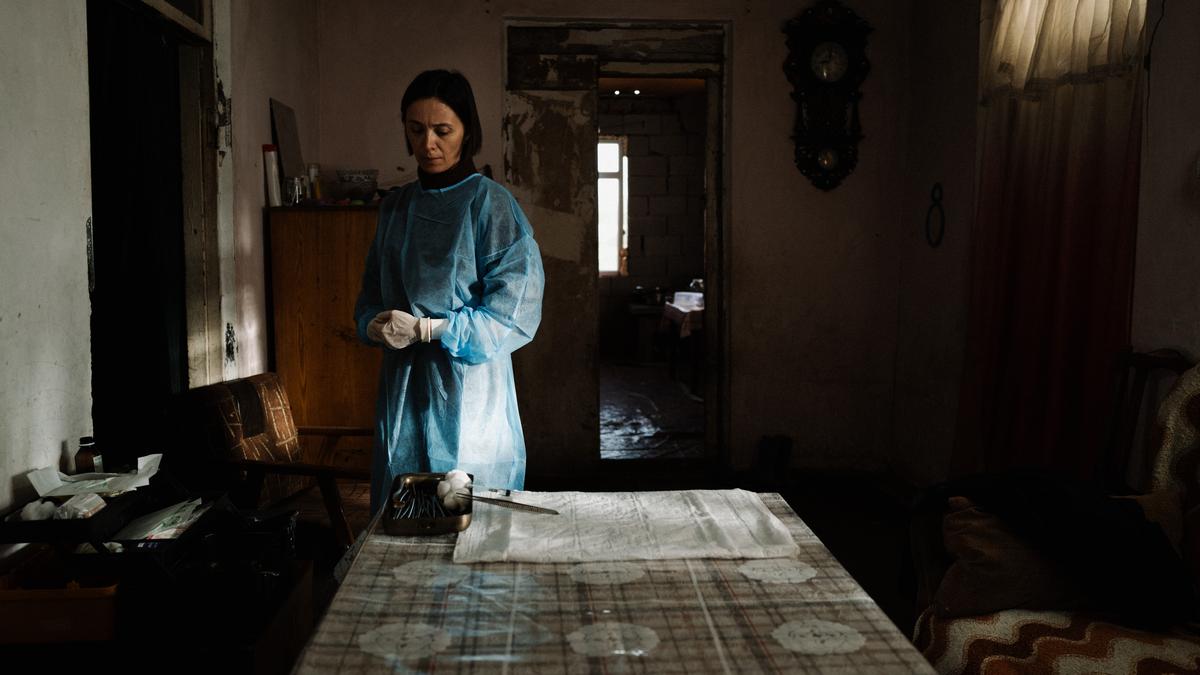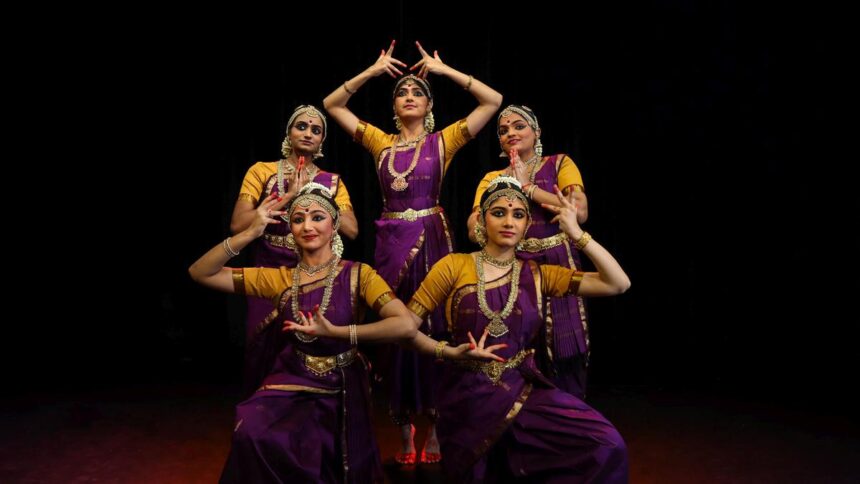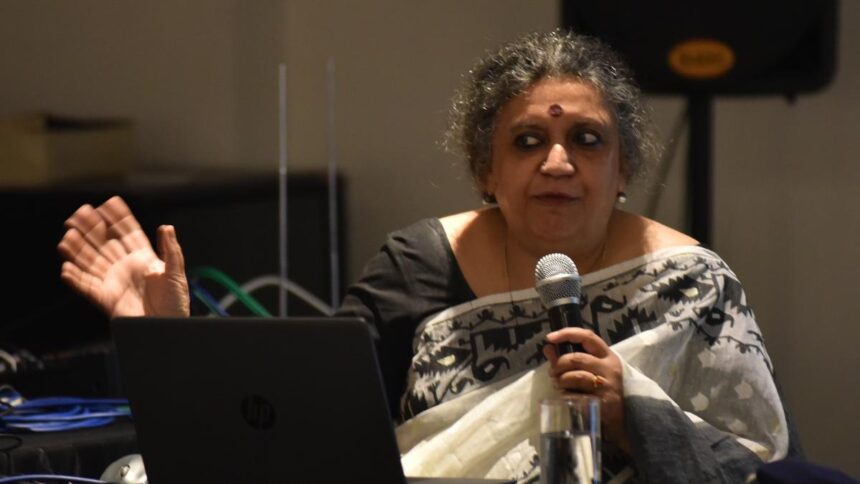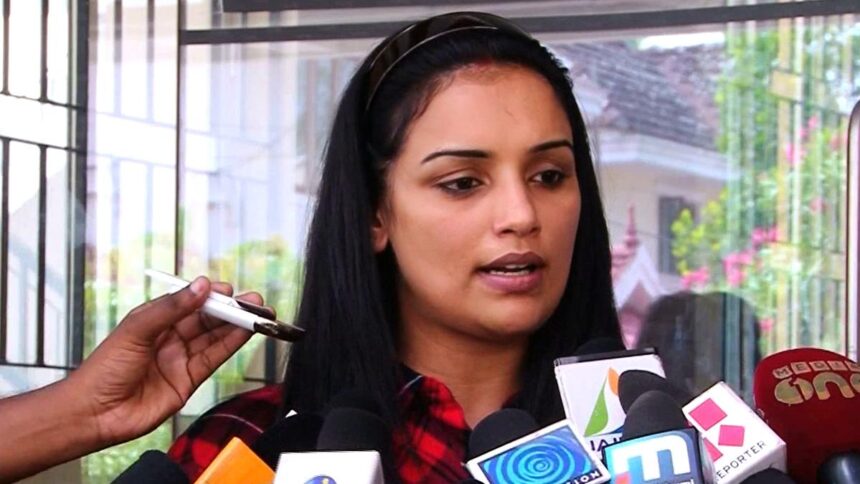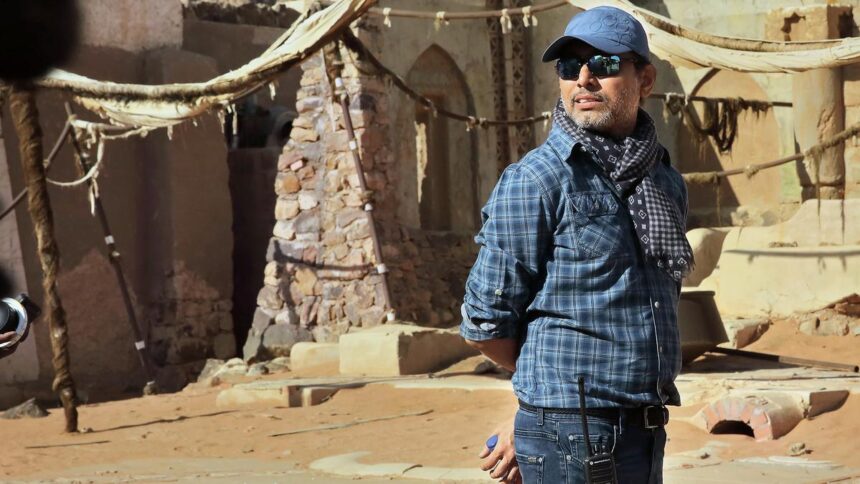“As a Georgian, I don’t believe much in hope,” Dea Kulumbegashvili says. “I’m more of a here-and-now person.” It feels appropriate given that she shot her film in secret, without permission or protection, and watched her country pretend her work did not exist. In spirit, she’s not far from Iranian filmmakers like Jafar Panahi, who once hid a film in a cake to get it out of the country, or Mohammad Rasoulof, who crossed mountains on foot to escape prison. A few borders away, Kulumbegashvili filmed April inside real maternity clinics, letting the camera stay with what power would rather look away from.

April, her follow-up to the Cannes-winning Beginning, has the rigor of reportage and the nerve of a feminist horror. It follows Nina, an OB-GYN in rural Georgia, who performs covert abortions in her spare time. The film’s most talked-about moment is an uncut, prolonged scene of a termination on a deaf-mute teenager that anchors its polemic in a steady thrum of embodied truth. “I wanted to show it. I needed to show it,” Dea says. “Because I think it’s time we really bring the female gaze into the beautiful realm of cinema.”
For lead actor Ia Sukhitashvili, that gaze demanded immersion. “We were there for two years,” she says. “And during that time, I was consistently thinking about Nina. Sometimes I lost connection with myself, but I exerted all effort to feel the emotions of this character. It was very challenging.”
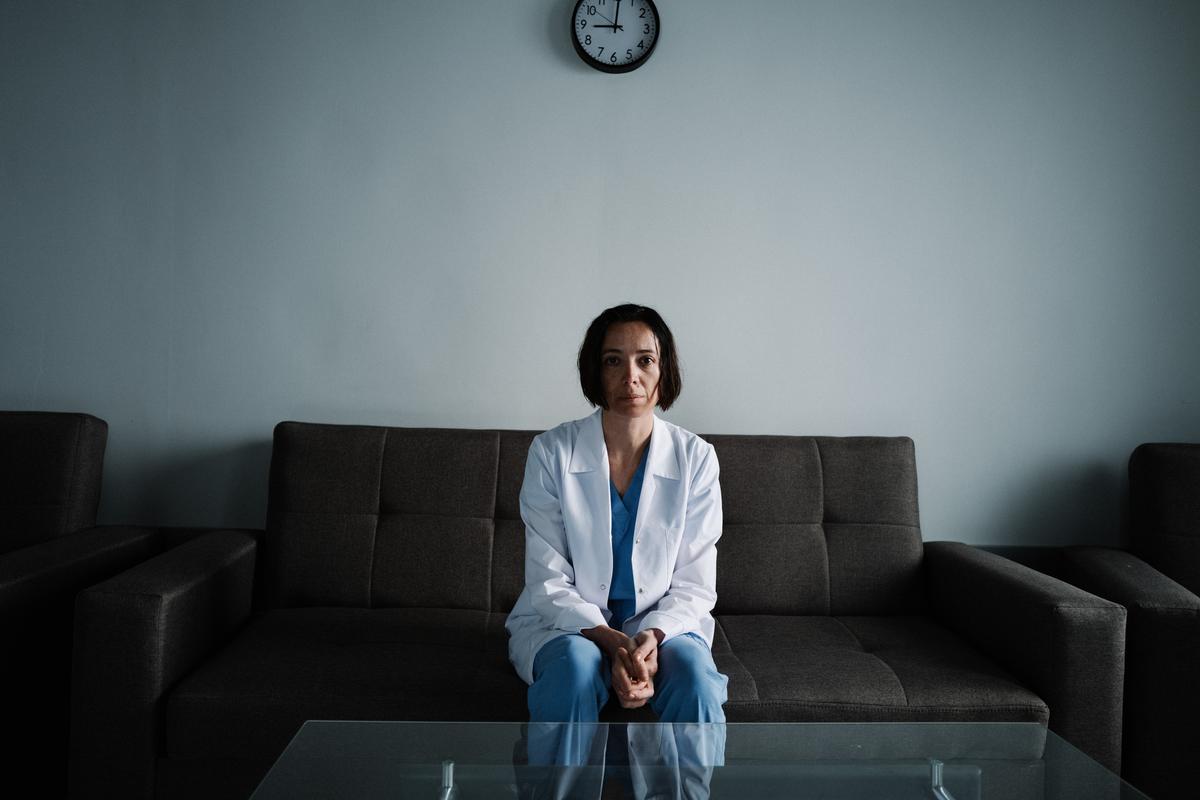
Ia Sukhitashvili as Nina, in a still from ‘April’
| Photo Credit:
MUBI
Sukhitashvili had previously won Best Actress at San Sebastián for Beginning, but April called for a different kind of surrender. She attended real births and observed real doctors. “It was a kind of magic,” she recalls. “There was complete silence. Just eye contact between the chief doctor and the assistant. And observing this helped me understand who Nina is.”
Nina is a woman on the brink of exhaustion, administering epidurals by day and birth control pills by night, often at great personal risk. But the risk isn’t merely logistical. In Georgia, abortion is technically legal up to 12 weeks but access is spotty, especially in rural regions steeped in Orthodox Christian tradition where even speaking the word can be perilous. So she made April the only way she could: clandestinely. “I was able to get away with it because nobody cared about me,” she says, with a bitter sense of clarity. “Now, more people care, and it’s going to be more difficult. Or even impossible.”

Still, she made the film. Kulumbegashvili and her team embedded themselves in a small-town maternity clinic for nearly a year, watching births, surgeries, and abortions unfold in real time. “I would like to give my thanks to the administration of the small town clinic in Lagodekhi, who allowed us to observe this process and to witness these procedures at this birthing clinic,” said Ia. “We made respective amendments to the screenplay based on our observations,” she added.
For both the actor and director, this almost apprenticeship-like immersion seemed to blur the line between fiction and witness. And this commitment to realism gives April its almost unbearable power. Its lived politics are unsensationalised, and are felt in the way Nina drives alone down foggy highways, stops for anonymous sex, and resumes her route to another kitchen-table abortion.
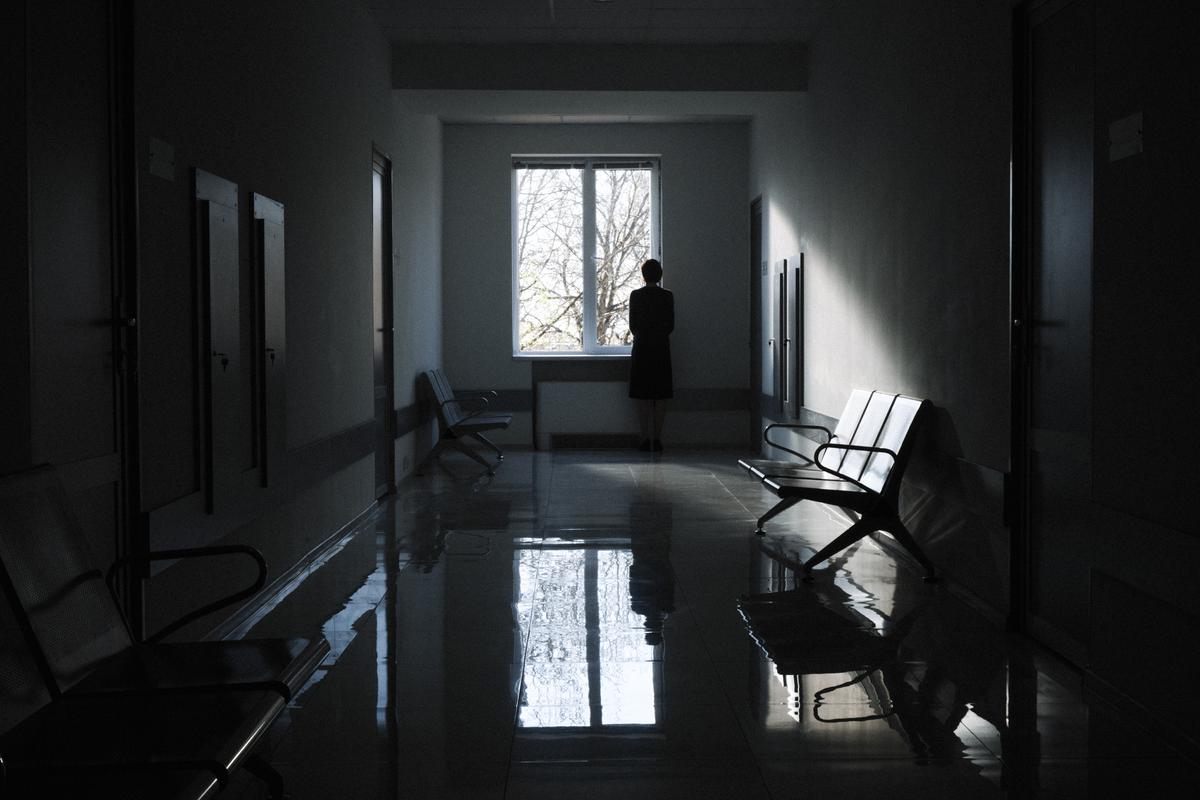
A still from ‘April’
| Photo Credit:
MUBI
In Georgia, this kind of visibility is unsurprisingly dangerous. Though April received international acclaim, no theatre in the country has dared to screen it. “It’s kind of like we live in this absurd reality where there is no answer why my film cannot be screened,” Dea said. “Dictatorship is usually absurd and surreal. And once you can’t call things anything anymore, this is when you know that you’re heading into the most oppressive of regimes.”
Yet, April is not about despair, or rather, it refuses to end there. In its long takes and spare dialogue, and its unwavering view of the female body as both vessel and battleground, it insists on an understated resistance. “I think of it as feminine, not just feminist,” Dea says. “My films are about the experience of living.”

Nevertheless, the horror is real and quite deliberate. “I would really love to make an actual horror film one day,” she admits, laughing a little. “But I think horror already gives us the most freedom to be honest, to explore humour, and to not take ourselves too seriously.” In many ways, April is already a horror film, though one grounded in the terror of not being seen, believed, or even allowed to help.
Asked about other films in the genre — like Audrey Diwan’s Happening and Eliza Hittman’s Never Rarely Sometimes Always — Dea nods. “I admire both of them. They’re incredible women and artists. I think cinema is a form of dialogue with everything that came before and everything that’s coming. Without that dialogue, art is impossible.”
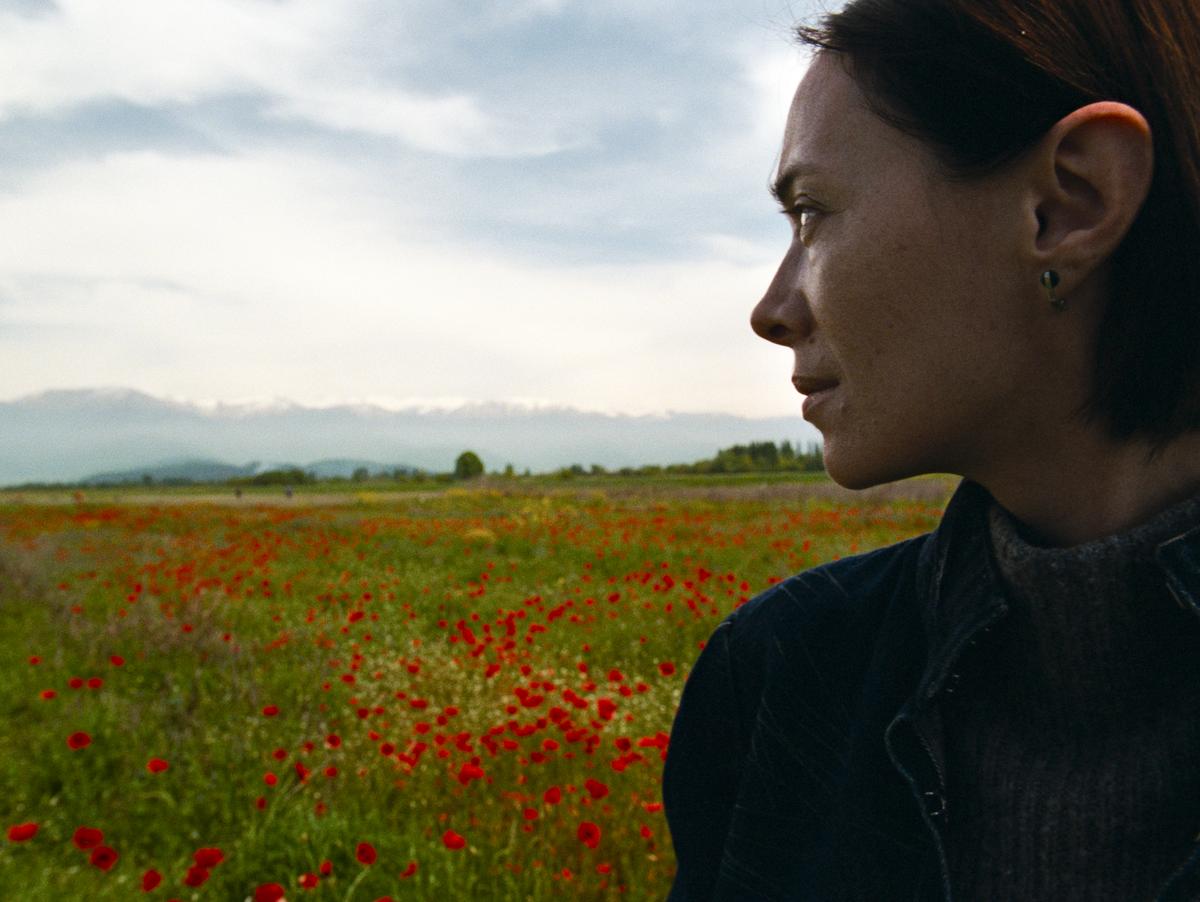
Ia Sukhitashvili as Nina, in a still from ‘April’
| Photo Credit:
MUBI
The film’s centerpiece abortion scene has stirred both admiration and unease. But for Dea, the decision was never up for debate. “That was the most obvious thing,” she says. “We talk about what’s hidden in this world. About how people don’t want to acknowledge that abortions happen.” When her predominantly male producers questioned if the audience could “handle” it, she says, “that made me even more convinced.”
That conviction ripples across that one unnervingly static frame. The scene is nearly silent, centred on the young girl’s pelvis. We do not see Nina or her tools. Only a girl, twisting in discomfort, and her sister’s hand, off-frame, holding hers. The whimpering soundtrack of a moment no one else will witness.

“We owe it to the women to show this”, Ia says. For her, stepping into Nina’s body was a means to continue a tradition of feminist storytelling, but also of breaking it open. “You don’t find every character easily,” she says. “Some, you have to wait for and feel the severity of the created situation.”
That the film may never screen in Georgia is, for both women, a heartbreak. “People ask me all the time,” Ia says. “‘Why haven’t we seen it?’ And I don’t have a good answer. But I believe it will happen. One day, no matter the effort.”
April is currently available to stream on MUBI
Published – August 01, 2025 06:29 pm IST








